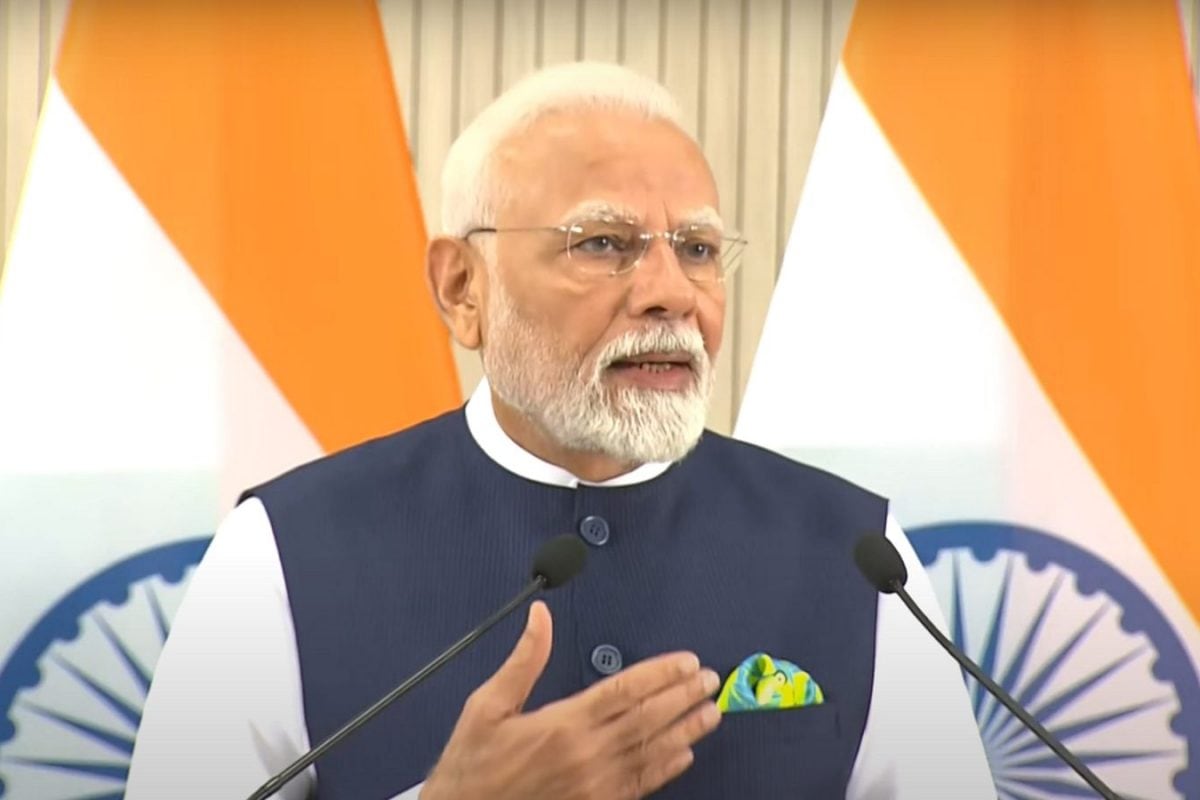

The Emergency, a dark period in India's democratic history from 1975 to 1977, saw the then Prime Minister Indira Gandhi impose a state of emergency, curtailing civil liberties and suppressing dissent. During this time, many political figures and organizations opposed the Emergency, often working clandestinely to resist the authoritarian regime. Among those was Narendra Modi, then a young Rashtriya Swayamsevak Sangh (RSS) pracharak, who played a significant role in organizing underground resistance activities.
A new book titled "The Emergency Diaries – Years that Forged a Leader," sheds light on Modi's covert operations during this tumultuous period. According to the book, Modi adopted various disguises to evade detection by authorities who had banned the RSS. He frequently disguised himself as a Sikh and even as a 'swamiji' or spiritual leader to move freely and carry out his activities without raising suspicion. These disguises allowed him to travel extensively and organize secret meetings.
Modi's responsibilities included distributing anti-Emergency literature throughout Gujarat. This was a risky task, as the government had imposed strict censorship and suppressed any form of opposition. To circumvent these restrictions, Modi devised innovative tactics, such as hiding pamphlets in barber shops and using trains instead of the postal system to deliver documents. These methods helped to reduce the risk of arrest and ensure that the literature reached a wider audience.
Beyond distributing literature, Modi also focused on maintaining morale and providing support to those affected by the Emergency. He helped organize financial and medical assistance for the families of imprisoned activists. Journalist Vishnu Pandya recounted an incident in September 1976 where Modi, disguised as a spiritual leader, visited activists in Bhavnagar jail. During this visit, he discussed the conditions of the jail, the needs of the prisoners' families, and strategies to further promote anti-Emergency literature.
Modi also employed code words to communicate and organize meetings, using phrases like "Chandan ka Karyakram" to refer to gatherings. He also ensured that meeting locations had multiple exit routes to facilitate escape in case of police raids. This level of detail demonstrates the meticulous planning and organizational skills Modi possessed even at a young age.
The book also highlights Modi's collaboration with senior RSS leaders such as Nath Zagda and Vasant Gajendragadkar. He advised volunteers to maintain community contact despite the ban on RSS shakhas, ensuring that the organization's network remained active.
While the Sangh Parivar projects itself as a champion of democracy during the Emergency, some historical accounts suggest a more nuanced role. Some sources indicate that some RSS leaders sought compromises with Indira Gandhi, even writing letters seeking release from jail in exchange for assurances of covert participation in the government's clampdown. However, the book "The Emergency Diaries" focuses on Modi's active resistance and commitment to restoring democratic ideals during this period.
The Emergency had a lasting impact on Modi, shaping his political views and leadership style. In a recent social media post, Modi reflected on his experiences during the Emergency, calling it a learning experience that reaffirmed the importance of preserving India's democratic framework. He encouraged others who had lived through the Emergency to share their stories, aiming to raise awareness among the younger generation about this critical period in Indian history.